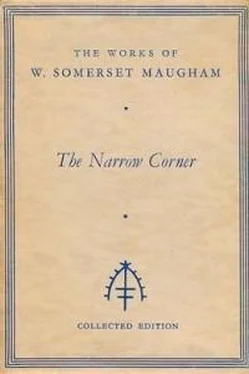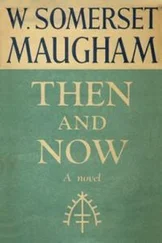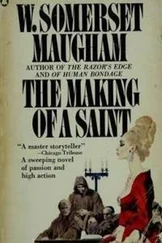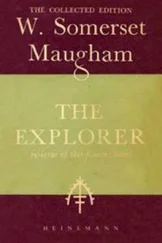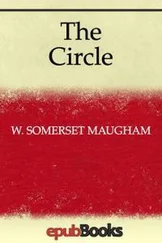He held in his hand now a volume of Père Huc’s travels, but he read with divided attention. His thoughts were occupied with the two strangers who had so unexpectedly appeared on the island. Dr. Saunders had known so many thousands of people in his Eastern life that he had no difficulty in placing Captain Nichols. He was a bad hat. By his accent he was English, and if he had knocked about the China seas for so many years it was likely that he had got into some trouble in England. Dishonesty was stamped on his mean and crafty features. He could not have prospered greatly if he was no more now than skipper of this shabby little lugger, and Dr. Saunders let a sigh, an ironical sigh, fall on the still air as he reflected how seldom it was that the crook received an adequate return for his labours. But of course the probability was that Captain Nichols preferred dirty work to clean. He was the sort of man who was willing to put his hand to anything. You would not trust him out of your sight. You could rely on him for nothing but to do you down. He had said he knew Kim Ching. It was probable that he was more often out of a job than in one, and he would have been glad enough to take employment under a Chinese owner. He was the kind of fellow you would engage if you had something shady to do, and it might very well be that at one time he had been skipper of one of Kim Ching’s schooners. The conclusion Dr. Saunders arrived at was that he rather liked Captain Nichols. He was taken by the skipper’s genial friendliness; it gave a pleasant savour to his roguery, and the dyspepsia he suffered from added a comic note that pleased. The doctor was glad that he would see him again that evening.
Dr. Saunders took an interest in his fellows that was not quite scientific and not quite human. He wanted to receive entertainment from them. He regarded them dispassionately and it gave him just the same amusement to unravel the intricacies of the individual as a mathematician might find in the solution of a problem. He made no use of the knowledge he obtained. The satisfaction he got from it was æsthetic, and if to know and judge men gave him a subtle sense of superiority he was unconscious of it. He had fewer prejudices than most men. The sense of disapproval was left out of him. Many people are indulgent to the vices they practise, and have small patience with those they have no mind to; some, broader minded, can accept them all in a comprehensive toleration, a toleration, however, that is more often theoretical than practical; but few can suffer manners different from their own without distaste. It is seldom that a man is shocked by the thought that someone has seduced another’s wife, and it may be that he preserves his equanimity when he knows that another has cheated at cards or forged a cheque (though this is not easy when you are yourself the victim), but it is hard for him to make a bosom friend of one who drops his aitches and almost impossible if he scoops up gravy with his knife. Dr. Saunders lacked this sensitiveness. Unpleasant table manners affected him as little as a purulent ulcer. Right and wrong were no more to him than good weather and bad weather. He took them as they came. He judged but he did not condemn. He laughed.
He was very easy to get on with. He was much liked. But he had no friends. He was an agreeable companion, but neither sought intimacy nor gave it. There was no one in the world to whom he was not at heart indifferent. He was self–sufficient. His happiness depended not on persons but on himself. He was selfish, but since he was at the same time shrewd and disinterested, few knew it and none was inconvenienced by it. Because he wanted nothing, he was never in anybody’s way. Money meant little to him, and he never much minded whether patients paid him or not. They thought him philanthropic. Since time was as unimportant to him as cash, he was just as willing to doctor them as not. It amused him to see their ailments yield to treatment, and he continued to find entertainment in human nature. He confounded persons and patients. Each was like another page in an interminable book, and that there were so many repetitions oddly added to the interest. It was curious to see how all these people, white, yellow and brown, responded to the critical situations of humanity, but the sight neither touched his heart nor troubled his nerves. Death was, after all, the greatest event in every man’s life, and he never ceased to find interest in the way he faced it. It was with a little thrill that he sought to pierce into a man’s consciousness, looking through the eyes frightened, defiant, sullen or resigned, into the soul confronted for the first time with the knowledge that its race was run, but the thrill was merely one of curiosity. His sensibility was unaffected. He felt neither sorrow nor pity. He only faintly wondered how it was that what was so important to one could matter so little to another. And yet his manner was full of sympathy. He knew exactly what to say to alleviate the terror or pain of the moment, and he left no one but fortified, consoled and encouraged. It was a game that he played, and it gave him satisfaction to play it well. He had great natural kindliness, but it was a kindliness of instinct, which betokened no interest in the recipient: he would come to the rescue if you were in a fix, but if there was no getting you out of it would not bother about you further. He did not like to kill living things, and he would neither shoot nor fish. He went so far, for no reason other than that he felt that every creature had a right to life, that he preferred to brush away a mosquito or a fly than to swat it. Perhaps he was an intensely logical man. It could not be denied that he led a good life (if at least you did not confine goodness to conformity with your own sensual inclinations), for he was charitable and kindly, and he devoted his energies to the alleviation of pain, but if motive counts for righteousness, then he deserved no praise; for he was influenced in his actions neither by love, pity, nor charity.
DR. SAUNDERS sat down to tiffin and having finished went into the bedroom and threw himself on his bed. But it was very hot and he could not sleep. He wondered what the connection was between Captain Nichols and Fred Blake. Notwithstanding his grimy dungarees, the young man did not give the impression of being a sailor; the doctor did not quite know why, and for want of a better reason surmised that it was because he had not got the sea in his eyes. He was hard to place. He spoke with something of an Australian accent, but he was evidently not a rough–neck, and he might have had some education: his manners seemed quite good. Perhaps his people had a business of sorts in Sydney, and he was used to a comfortable home and decent surroundings. But why he was sailing these lonely seas on a pearling lugger with a scoundrel like Captain Nichols was mysterious. Of course the pair of them might be in partnership, but what traffic they were engaged in remained to be seen. Dr. Saunders was inclined to believe that it was not a very honest one, and whatever it was, that Fred Blake would get the thin end of the stick.
Though Dr. Saunders was stark naked, the sweat poured off him. Between his legs was a Dutch wife. This is the bolster which they use in those parts for coolness’ sake, and many grow so accustomed to it that even in temperate climes they cannot sleep without it; but it was strange to the doctor and it irked him. He threw it aside and rolled over on his back. In the garden round the rest–house, in the coconut grove opposite, a myriad insects were making noise and the insistent din, which generally fell unheard on ears benumbed, now throbbed on his nerves with a racket to awake the dead. He gave up the attempt to sleep, and wrapping a sarong round him, went out again on to the verandah. It was as hot there as within and as airless. He was weary. His mind was restless, but it worked perversely, and thoughts jerked through his brain like the misfirings of a defective carburettor. He tried to cool himself with a bath, but it brought no refreshment to his spirit. It remained hot, listless and uneasy. The verandah was intolerable, and he threw himself once more on his bed. The air under the mosquito curtains seemed to stand still. He could not read, he could not think, he could not rest. The hours were leaden–footed.
Читать дальше
Конец ознакомительного отрывка
Купить книгу
